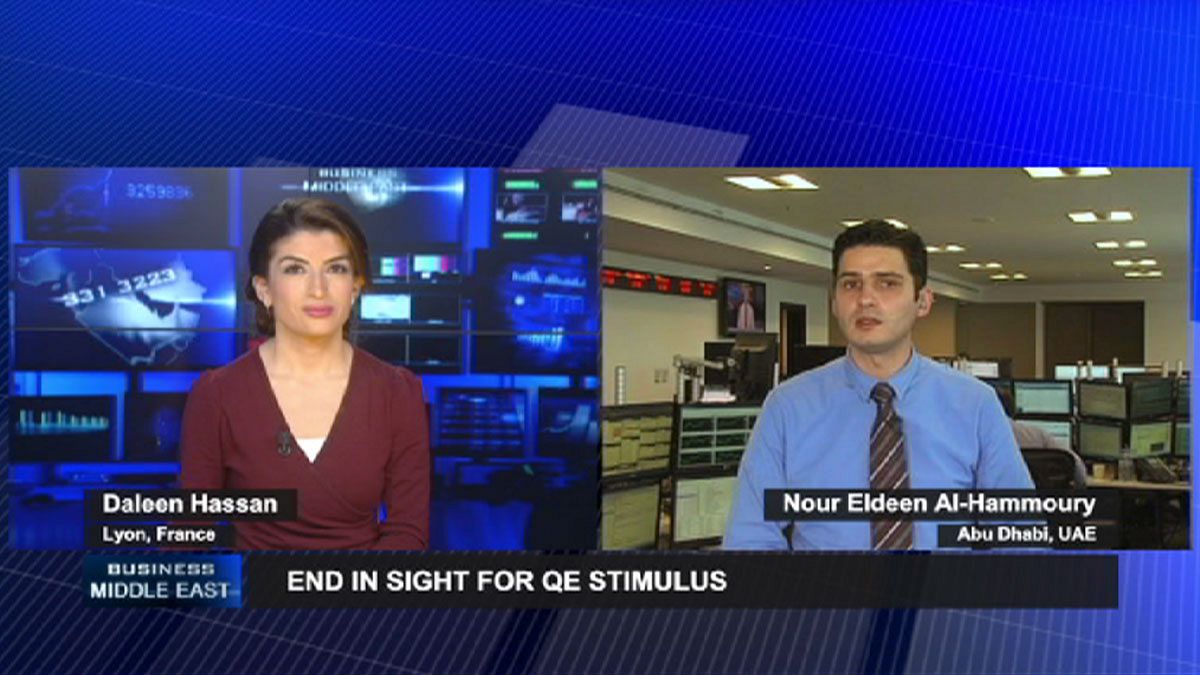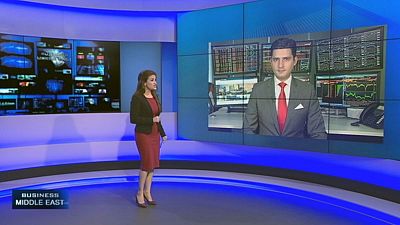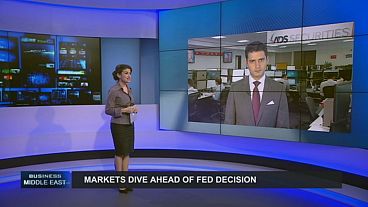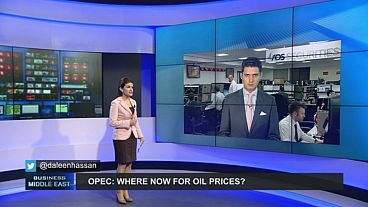Business Middle East looks at the implications of the US Federal Reserve ending its quantitative easing programme. It is being wound down as the Fed gets ready to take off the training wheels and let the US economy ride on its own. While the Fed feels growth may be sufficiently back on track, so that kind of stimulus is no longer needed, some investors in Europe and the Middle East are not so sure and they and worry about the consequences to economies and markets. To find out more, Daleen Hassan spoke to Nour Eldeen Al-Hammoury, Chief Market Strategist at ADS securities in Abu Dhabi.
The Federal Reserve is set to announce the completion of its third round of quantitative easing – QE3.
That consisted of printing money to buy long-term government bonds and bonds backed by home mortgages.
If the US economy then continues to grow, and financial markets remain stable, the Fed’s policymakers will consider raising interest rates, probably late next year. After the financial crisis, the Fed used quantitative easing three times to keep borrowing costs low for home buyers and stimulating the economy to create jobs.
QE1, in march 2010, injected just over one and a half trillion dollars into the economy
It was followed by QE2, starting in June 2011, totalling 600 billion dollars.
QE3, from September 2012, began at 40 billion per month, rising to 85 billion dollars a month.
Since January the Fed has been trimming its bond purchases, and if – as expected – they end this month, the total will have been 789 billion US dollars.
During QE3 the US economy has grown, unemployment fell below six percent of the work force, and inflation rose slightly.
All that cheap money boosted markets in the Middle East, Europe and Asian.
However when the Fed ended QE1 and QE2, financial markets slumped, and investors are worried that could happen again.
Daleen Hassan, euronews: “Is the US economic recovery firmly enough established to continue without the Fed’s stimulus? And what about Asia and Europe?
Nour Eldeen Al-Hammoury: “Well there are some improvements, but we can’t say that it is recovering as everyone hoped. GDP is growing based on the inventories, which doesn’t mean that sales are increasing. The slack in the economy remains and so far there is no clear strategy on how this slack will be resolved. Moreover, the slowing down in Europe and Asia will be something to consider as the US economy is unlikely to grow on its own.
Daleen Hassan, euronews: “Middle East markets have certainly benefited from the Fed’s stimulus measures. If there is no more cheap money from quantitative easing, will that restrict their growth?”
Nour Eldeen Al-Hammoury: “It is not the Middle East markets only, it is global markets and especially the emerging markets. Let’s say for example Dubai, Dubai stock market was one of the best performers in the world. However, we will see some more declines at the end of the year. These markets are again sensitive to any events. However, these Middle East markets may benefit again from what’s happening in Europe. I mean the outflow that is happening in Europe and also don’t forget that this region has also opened its doors to foreign investors so with the Fed ending QE we might see some declines again, and if the global slow down continues, global markets, including the Middle East, may continue with the current downside correction.”
Daleen Hassan, euronews: “The next big move from the Fed would be raising interest rates. What could happen then?”
Nour Eldeen Al-Hammoury: “The global markets have priced in such move. However, we are looking at the bonds markets lately and so far traders seem not sure that the Fed will be able to raise the rates and the US 10 Yr yields remain lower despite all the talks of raising the rates next year. Furthermore, the housing market does not support such a move anytime soon.”
For all the latest business news follow us on Facebook.



